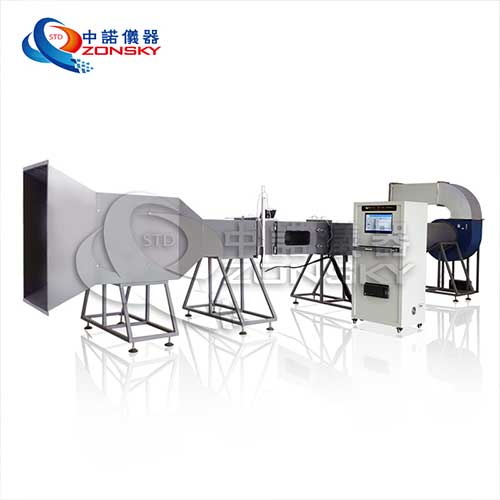Aviation material Testing Equipment plays a crucial role in ensuring the safety and reliability of aircraft components and systems. With the continuous advancement of aviation technology and the improvement of flight safety standards, the quality and performance requirements of aviation materials are becoming more and more stringent.Aerospace materials must undergo rigorous testing and evaluation. Aerospace materials Testing Equipment has been developed to provide engineers and researchers with a range of critical tools for evaluating the performance and durability of a wide range of aerospace materials.

1. Improve flight safety
One of the main goals of aerospace materials testing equipment is to improve flight safety. By conducting a variety of tests on materials such as tension, compression, and bending, engineers can determine properties such as strength, toughness, and hardness. These test results help manufacturers and designers choose the right materials to ensure they will not fail due to various external forces during flight.
2. Optimize material selection
The aviation industry demands materials with specific characteristics tailored to different applications. For instance, engine components require materials capable of withstanding high temperatures and pressures, while airframe materials need to be lightweight yet exceptionally strong. Aviation Material Testing Equipment empowers engineers to make informed decisions by providing in-depth insights into materials' properties. This optimization ensures that the chosen materials are not only suitable for their intended purpose but also contribute to the overall efficiency and safety of the aircraft.
3. Improve material durability
Aircraft experience various extreme conditions during flight, including temperature changes, vibration, humidity, etc. Aerospace materials testing equipment can simulate these conditions and evaluate the performance of materials in different environments. This helps manufacturers predict the life of materials and avoid failures due to aging or corrosion. Through testing, engineers can develop more durable and reliable aerospace materials that extend the service life of aircraft.
4. Promote innovation in aviation technology
Aviation materials testing equipment is constantly updated and improved to adapt to the development of new materials and technologies. This innovation has promoted the advancement of the aviation industry, making aircraft lighter, more energy-efficient, and more environmentally friendly. For example, the introduction of new composite materials has significantly reduced the weight of aircraft, improved fuel efficiency, and reduced carbon emissions. These innovations result from in-depth research and testing of aerospace materials.
Overall, aerospace materials testing equipment plays an integral role in the aviation industry. Through rigorous testing and analysis, they ensure the quality and performance of aviation materials, improve flight safety, and promote continuous innovation in aviation technology. In the future, with the continuous development of science and technology, aviation material testing equipment will continue to play a key role in promoting the aviation industry to a higher level.
 WhatsApp:
WhatsApp: Mobile Phone:
Mobile Phone: Contact Now
Contact Now